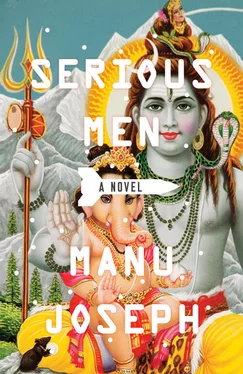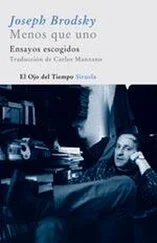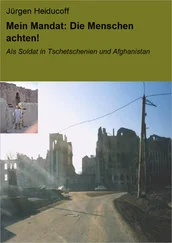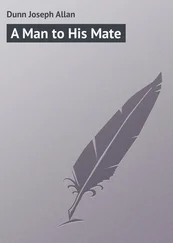An abandoned taxi was still kissing the rear of her car. A dark man, who must have been the cab driver, was standing facing her in the middle of the road, sheepish and giggling. People on the pavement looked on in glee. A man who was sitting on his haunches and watching the fun screamed, ‘Now look at her bumper.’ Ayyan walked through the situation with a serene smile.
A few metres ahead was a barber’s called Headmaster, and next to it was a restaurant with aluminium-topped tables and wooden chairs. At the entrance, Ayyan spotted Thambe, the tiny man to whom he had handed an envelope full of notes on the Worli Seaface. They sat at a table and ordered tea. ‘The article was great,’ Ayyan said. ‘My boy is so happy.’
‘I hope other papers pick it up,’ Thambe said, flapping his thighs. He stopped a waiter to ask if there was a toilet in the restaurant. The waiter shook his head.
Thambe was a reporter with Yug, and one of those hectic men who did things that did not have a name. He could bring back lost licences, create ration-cards, and he knew the mobile numbers of government clerks.
‘You really did a beautiful job of my son’s achievement,’ Ayyan said.
‘I believe that brilliant boys like your son have to be supported,’ Thambe said, pouring his tea into the saucer.
‘Has anybody from the English papers contacted you about my son?’
‘No,’ the reporter said. ‘The English reporters are such snobs. They never follow up anything we do.’
‘I see. You know, Thambe, it would have been nice if you had put him on the front page. After all, a ten-year-old boy winning a contest like that is no small achievement.’
‘I know. But the front page,’ Thambe said, smiling sadly, ‘is very expensive, Mani.’
‘How expensive?’
‘Oh, it’s beyond us. I don’t even go there. It is for big people.’
‘Your editor knows that you … you help friends?’
‘You are asking me if the editor knows if I take money to write? Be direct. We are friends now. Of course he knows. You know how much my salary is? Eight hundred rupees. When he hired me, he said, “We don’t pay much.” Then he took out a press card with my photograph on it and said, “Now go out into the market and make whatever you want.” ‘
They drank their tea silently. Then the reporter said, ‘I have to go now. So if …’ Ayyan took out his wallet and counted some notes.
‘This is for friendship,’ he said, as he handed the cash to Thambe. ‘The advance I gave you, that too was for our friendship.’
‘Friendship, of course,’ the reporter said. His face turned serious as he counted the notes. It was the same serious face, Ayyan remembered, that descended on the great minds of the Institute when they counted cash.
‘Friendship is everything,’ Thambe said, somehow finding space for the notes in his shirt pocket, which was already bulging. ‘I took your word, Mani. You said your son won the contest, I believed you. No questions asked. That’s friendship.’
‘Is there a way such a friendship can get English papers to write about my son?’
On his way back home, a familiar gloom filled Ayyan. There was no getting away from it. He tried to fight it by imagining the face of Oja Mani, how jubilant she had looked when Adi’s teacher had sent the first frantic note about the boy’s insubordinate brilliance. But the gloom only grew into an acidic fear in his stomach. Fear worried him because it reminded him that life was not always a familiar place. This game he was playing was far bigger than the other plots of his life. The game, this time, was his son.
The rise of Adi as a child genius had begun about a year ago when Ayyan had gone home late one evening and Oja had opened the door with tears in her eyes and a deep joyous smile that made him suspect that her demented mother had finally won a lottery.
‘My son got 100 per cent in the maths test,’ Oja had said. ‘There are forty-two boys in his class. All fair and rich and fat. My son was the only one who got 100 per cent.’
Oja, who usually stared blankly at him without ambition or hope, and sometimes in the sorrow of being stranded in a humid hell, was so ecstatic that only tears could release the joy. That night he had taken Adi out for ice-cream. When they were walking down the Worli Seaface he heard the boy mutter the name of every car that was parked or was passing by. He had merely to look at a car, its front or its rear, and he would know its make. It seemed exceptional, but Ayyan knew there was nothing there more than a simple streak of smartness that most children possessed. He had heard a thousand times men chatting in the train about the brilliance of their children — ‘My son is just three but he knows how to turn on the computer and send emails. He is a genius.’ Or, ‘My daughter is ten but she knows the names of all the lakes in the world.’ It was in that way that Adi was smart. ‘City, Ambassador, Zen, Esteem, City,’ the boy was saying on the promenade. The vigilant mind of Ayyan began to think of a simple plot, to achieve nothing more than some fun and a distraction from the inescapable miseries of BDD.
From that night, he drew Adi into a pact. ‘Our secret,’ he would tell his son, and make him memorize questions that he should ask his teachers. Ayyan devised simple questions, like, ‘What is gravity made of, Miss?’ Or, ‘Why are leaves green?’ He asked Adi to raise these questions any time during the class, never mind the context. ‘It’ll be fun,’ he told his son.
At first, the boy’s questions in the class seemed endearing. Teachers found him cute and, of course, bright and curious. Slowly, Adi’s questions became more complex: ‘If plants can eat light, why aren’t there things that eat sound?’ Or, when he heard a cue word like ‘ocean’, he would yell in the class, ‘The average depth of the ocean is 3.7 kilometres, why aren’t lakes so deep?’ When his teachers, still enamoured with his oddness, tried to engage him in a conversation about light, or sound, or the ocean, Adi clammed up because he did not know anything beyond what his father had taught him. But his silence did not surprise the staff. He was, after all, just a little boy. An odd, laconic little boy who was also partially deaf.
When it all began, Adi used to mumble to his mother about having a secret pact with his father, but she dismissed it as the prattle between father and son. In time, Adi began to enjoy the attention he was receiving at school. He began to understand that he was considered extraordinary, and not ‘special’ which was what they called the handicapped. He began to attach a certain importance to the pact with his father and even understood the reason why it had to be a secret. He vaguely knew that his mother would not tolerate the game he and his father were playing, and her opposition would deprive him of the status he was beginning to be granted in school.
He looked forward to disrupting every class. The disruptions began to annoy his teachers. They were increasingly baffled by his questions. They began to write notes in his handbook summoning his parents, and that created moments of fear and entertainment at home. Oja was concerned, but she was also excited by the prospects of a genius. ‘I want him to be normal,’ she would say, but she told everyone about his brilliance. She circled fire around his face and stained his cheek with black powder to exterminate the evil eye. The myth of a child genius was surprisingly simple to create, Ayyan realized, especially around a boy who was innately smart and who wore a hearing-aid. Adi had simply to say something odd in the class once a week to keep the legend alive.
It was easy and it was fun, but Ayyan wanted something more. So he arranged for the fictitious news item about Adi. It was still simple. The whole game could be called off at any moment. It had to end some day anyway. And it had to end before they got caught. He believed in his heart that he could get away with it. He found some comfort in the fact that he was not the first person to create the myth of genius around his child. There were people, mothers especially, who had spun far greater yarns. He had once read the incredible story of a French girl called Minou Drouet, a name he could somehow never pronounce. She published her poems when she was just eight. Her poems stunned the giants of French literature until some people began to say that it was her mother who was writing them. Little Minou was tested. She was asked to write poems in front of people. And she did. But the whole matter was never resolved. Even today people did not know if she were a child prodigy or her mother’s fraud. Then there was another girl, a Russian child called Natasha Demkina, whose mother claimed that the girl had X-ray vision. Many doctors even confirmed that Natasha had that ability, but there were many who said she was a fraud. Ayyan wanted to meet those marvellous mothers. He believed he understood them, and understood why they did what they did.
Читать дальше












